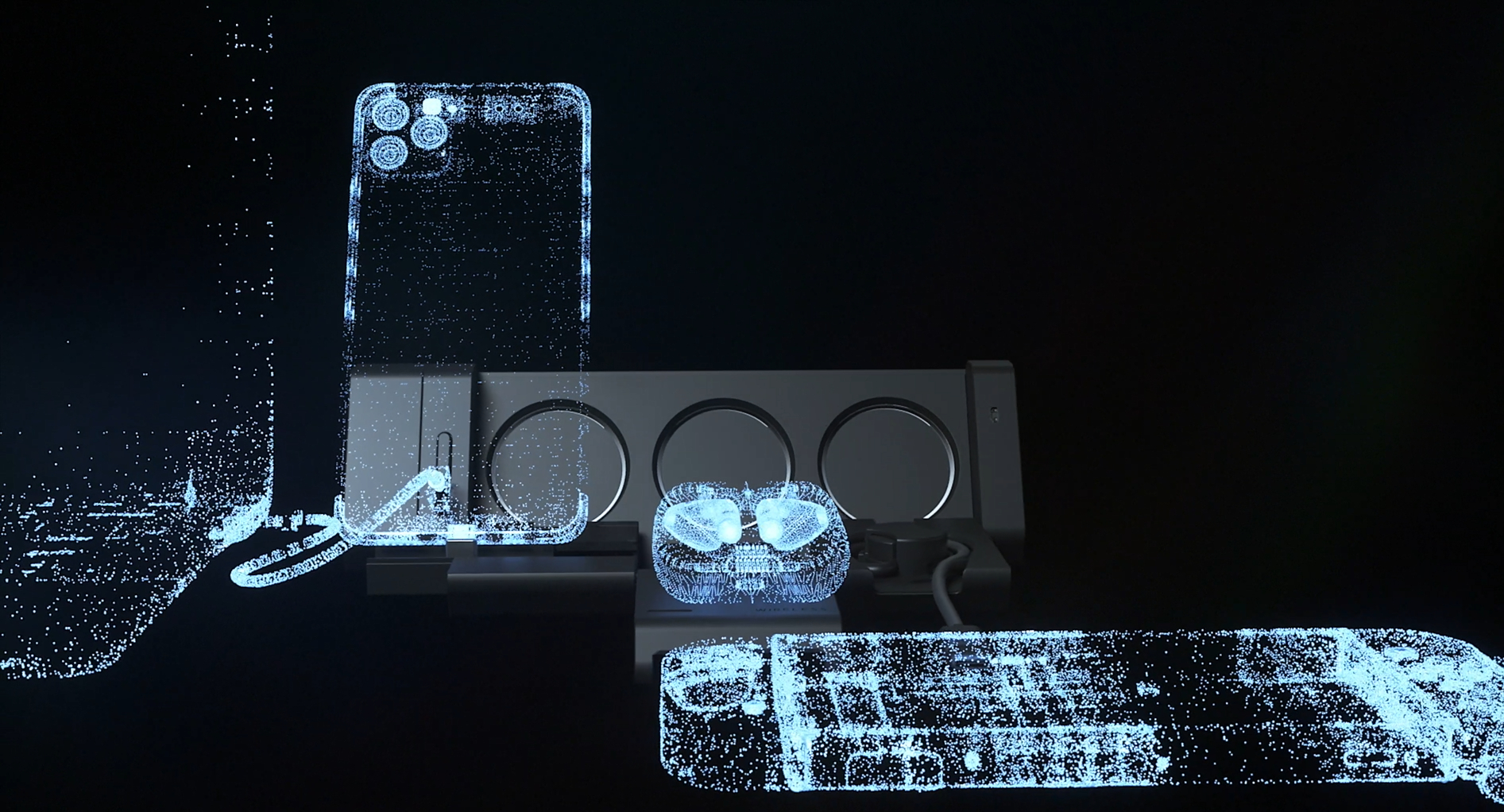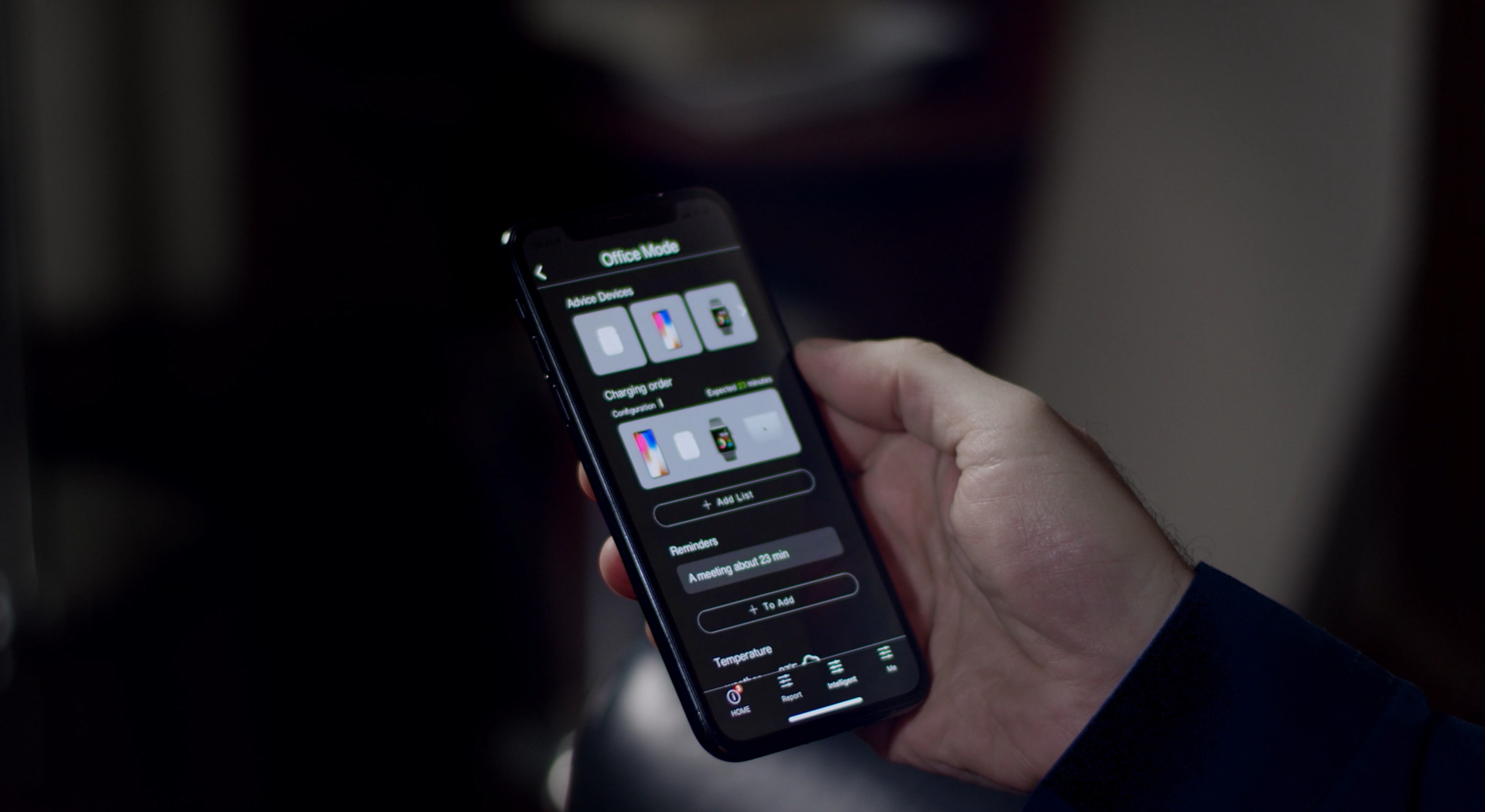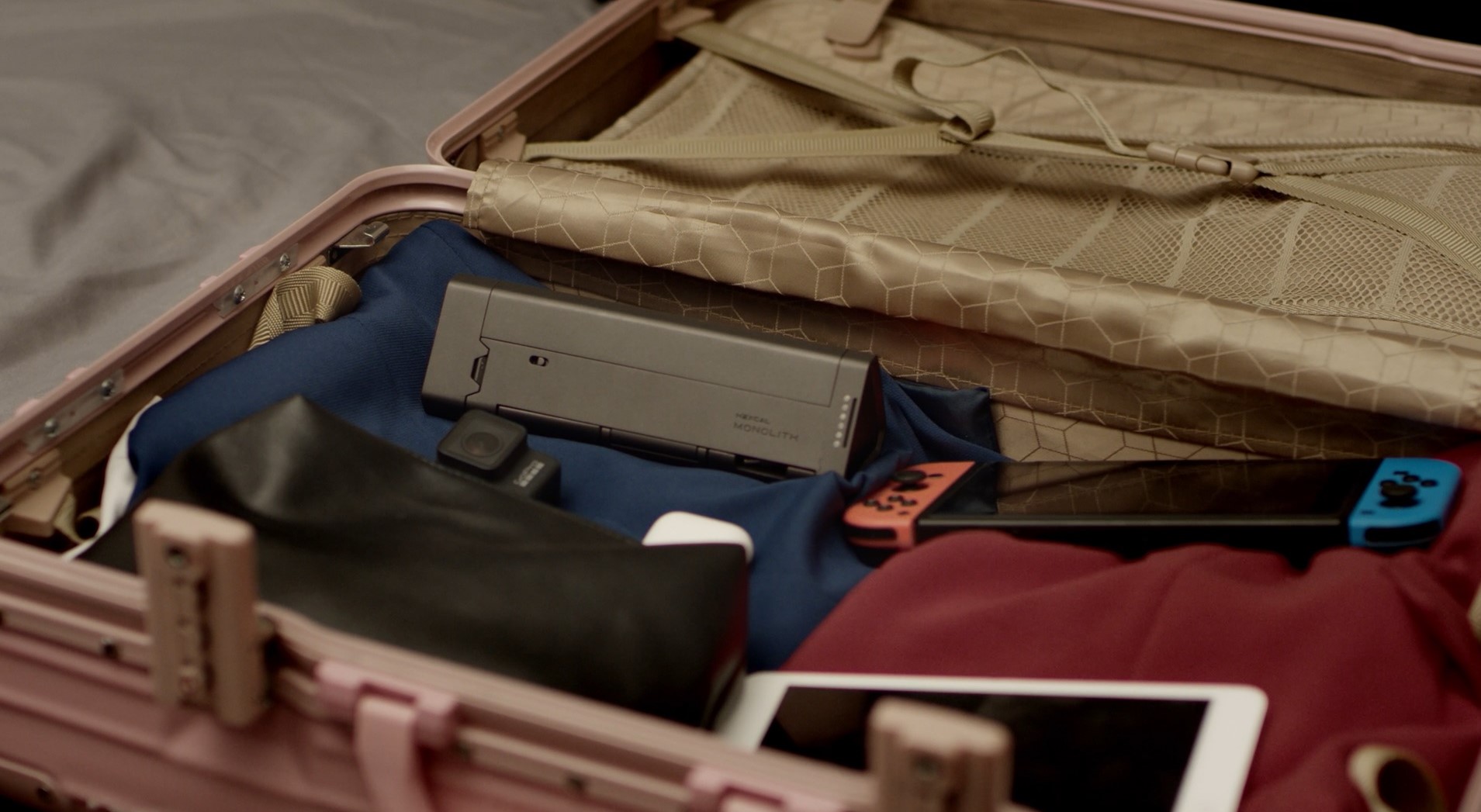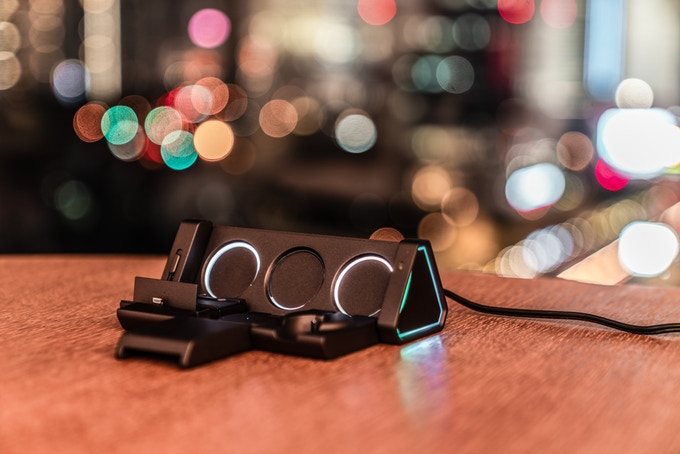When you own and use a lot of different devices, it can be hard to find a place to plug them all in (sometimes it’s hard to even keep track of all the different plugs.) Monolith hopes to solve this problem.
Monolith is the world’s first “e-Butler,” a device designed to manage all of your devices and power up to four at a time while you’re on the go via its modular add-ons. Monolith has more than 400 different components to supply power to almost all modern devices, including phones, tablets, laptops, and even gaming controllers. And yes, there is a plan to develop a speaker mod that would attach to it and offer support for voice assistants like Amazon’s Alexa.
According to Hexcal, the company behind Monolith, the device is capable of charging devices 10 times faster than traditional methods. It does this through the use of GaN, or gallium nitride, a material used to build semiconductors that channels power more efficiently.
Monolith’s charging capabilities don’t just stop at increased speed, however. An onboard A.I. analyzes your usage habits to prioritize charge to different devices based on their level of importance. For example, as you use Monolith, it learns whether it needs to send more power to your iPhone or your Nintendo Switch. It’s the first power-management device to integrate A.I. monitoring, voice control, and a modular design into a single package.
Monolith is outfitted with voice control. It greets users and provides updates on the status of devices, such as how much time is required to achieve a full charge. The voice is available in English, German, Spanish, Japanese, and Chinese at the moment, although more languages might become available later. There’s also a connected component that allows users to use the accompanying app to remotely initiate the charging process and to monitor levels.
The e-Butler is designed to be easily portable so that you can take it with you on the go, whether you’re heading for an important meeting or out to a coffee shop. Monolith is designed to support 11 different modules (though the base set has 3) for charging of more than 300 different devices. Because the unit is divided into different modules, you aren’t required to carry a dozen different dongles — only the ones you need. Monolith also offers a battery that can be attached to the device to provide charging on the go when you’re away from an outlet.
Monolith is available on Kickstarter for $199 for those who pledge early, but remember that a pledge is not a guarantee of delivery. HEXCAL says the device will retail for $349 once it becomes available on the mass market.







